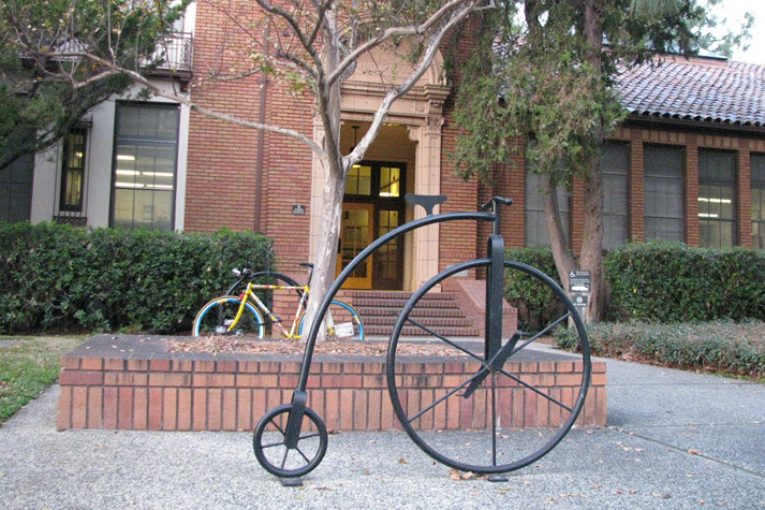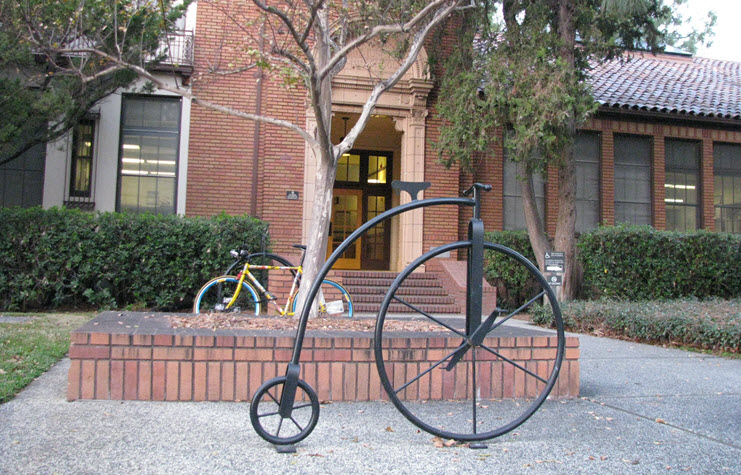

By David M. Greenwald
Executive Editor
Davis, CA – In a lot of ways, the city of Davis has a split personality. That’s the only way one can really describes things politically at this point in time. On the one hand, polling continues to show a large concern by the voters for the affordability of housing, but at the same time, for the most part the community has voted against specific projects.
On the one hand, there seems to be a reservoir of anger and frustration at the leadership of the city council. But on the other hand, the overall ratings in polls are fairly solid (even robust by comparison to other branches of government) and there continues to be a disconnect between those feelings of angst in some segments, the voting behavior of people on land use issues and who ends up getting elected to council.
So what will happen on Tuesday? There is a pretty good chance that not much will change. I will get into more in a future column.
What really struck me was a letter I read to Enterprise from a Davis resident.
The letter writer notes, “For too long, now, there has been a culture of arrogance and paternalism at Davis City Hall — an attitude that says to residents and neighborhoods “we know what is best and we don’t care what you think.””
That’s certainly a sentiment we hear quite a bit.
And the writer is correct to note that the voters have the power “to put an end to that culture by making a wholesale change in the City Council” (technically the voters can only change their councilmember and even then only in two districts).
But that’s part of the point here. In 2020 for example, voters had the option – clear option of change versus the status quo and overwhelmingly voters opted for the status quo. Incumbent Lucas Frerichs won by a near 2 to 1 margin in his race, and incumbent Will Arnold bested both of his opponents with ease as well.
The writer references the DISC project, “approved unanimously by the City Council, with all Council Members endorsing and campaigning for Measure H, only to see it defeated soundly by Davis voters.”
At the end of the day, that’s probably the strongest argument the forces for change have – rather than the somewhat contrived attempted to create other controversies.
But will it work this time? It hasn’t in the past. We have not seen a single example of an incumbent in Davis tossed out after supporting a project the voters opposed. Measure X for example went down in 2005 by a 60-40, but Don Saylor, Stephen Souza and Ruth Asmundson all won their next election.
Over the last 20 years only three incumbents have lost reelection, and none of them as a result of supporting a failed project.
Could that change with district elections? Possibly. But if I had to bet today, I will bet it will not happen this time either.
The writer notes, “The culture at City Hall needs to change, but it is not just about culture, it is also about policy. It is a sad fact that our City Council has never seen a development proposal it didn’t like.”
They then argue, “If this council has its way, urban development, like the DISC, Nishi, Cannery and West Davis Bretton Woods projects, will continue to sprawl out into farmland and the city’s population will grow exponentially.”
Nevermind that the voters overwhelmingly supported both Nishi and Bretton Woods when they had a chance to support them at the polls.
Nevermind also that Cannery was not paving over farmland.
In fact, DISC is really the only project that this council has supported that paves over farmland that was not ultimately backed by the voters.
The writer concludes, “Proponents argue that this development is needed to provide affordable housing and increase city revenue. Its time to elect council members who are more concerned about the environment and the quality of life of neighborhood residents.”
But isn’t the point of all of this that there really are more than one vision for how to protect the environment and quality of life?
I would argue that without affordable housing and without finding ways to create additional housing, we will price middle income people out of this community – that damages our schools and impacts our quality of life.
I would also argue that if the city lacks the ability to provide basic services and amenities – including roads and parks – that we will damage our quality of life.
In the end, the voters have generally supported the status quo both in terms of council and in terms of being skeptical of new peripheral projects. As a result, we see that most councilmembers get reelected, but most projects get voted down.
That naturally creates a tension especially with a highly engaged electorate that is largely split on these critical issues.
Right now, I don’t see much changing in this election and that figures to continue the existing tension between a council that sees the need for some new housing and a sizable portion of the voters who are far more skeptical about individual projects even as they see a problem with housing affordability overall.


I think this sentiment highlights the arrogance that many residents of Davis have towards civic leadership. There’s a belief that they should be involved in every micro-managed detail for every process.
That’s what leaders do, they do things that they think is best for their people (city voters in this case). If the people don’t like it, they vote them out. But you don’t whine about the leaders not doing what you want them to do. They were voted in to do what they’re doing. They’re not a rubber stamp for the fickle will of the unwashed masses.
This person is a moron. You can’t pay for things that help the environment without tax revenue. And yes, as David says the quality of life will be impacted with lack of tax revenue. No, people like this believe in magical solutions where things like money and funding appear out of thin air. These no growth people should simply label their efforts for the city of Davis as “The Great Leap Backward” because lack of funding will erode the town and it will become the small country backwater agrarian town.
What’s even more interesting is that the person was the CFO of Sacramento County
I agree that the City Council needs to exert stronger leadership. But it also needs to get more community buy in on the controversial decisions. Too often it has shut out key advisory groups–several times over the last half dozen years the Council has either made a decision before consulting the experts they’ve appointed to a commission or ignored the voice of those commissions in making key mistakes that have cost the City millions of dollars. I believe at least some of this arises due to the relationship between the Council and the City Managers. This is a complex problem but we need to acknowledge it rather than falling to either extreme that either there has been no problem or that the Council members need to be tossed and everything should be a plebiscite.
OK, but what about the property-owning entities? Aside from Measure J, what really mechanisms are there to resist their power? What about automobile interests? What’s really improved in developing and improving alternatives to driving private vehicles aside from electrification?